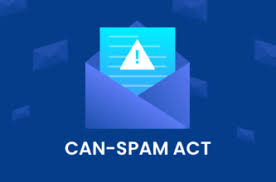Box Acquires Alphamoon
Box Inc. has acquired Alphamoon to enhance its intelligent document processing (IDP) capabilities and its enterprise knowledge management AI platform. Now that Box acquires Alphamoon, it will imr improves IDP. Box Acquires Alphamoon IDP goes beyond traditional optical character recognition (OCR) by applying AI to scanned paper documents and unstructured PDFs. While AI technologies like natural language processing (NLP), workflow automation, and document structure recognition have been around for some time, Alphamoon introduces generative AI (GenAI) into the mix, providing advanced capabilities. According to Rand Wacker, Vice President of AI Product Strategy at Box, the integration of GenAI helps not only with summarizing and extracting content from documents but also with recognizing document structures and categorizing them. GenAI works alongside existing OCR and NLP tools, making the digital conversion of paper documents more accurate. Box Acquires Alphamoon – Not LLM Although Box hasn’t acquired a large language model (LLM) outright, it has gained a toolkit that will enhance its Box AI platform. Box AI already uses retrieval-augmented generation to combine a user’s content with external LLMs, ensuring data security while training Box AI to better recognize and categorize documents. Alphamoon’s technology will further refine this process, enabling administrators to create tools more efficiently within the Box ecosystem. “For example, if Alphamoon’s OCR misreads or misextracts something, the system can adjust that specific part and feed it back into the LLM,” Wacker explained. “This approach is powered by an LLM, but it’s specifically trained to understand the documents it encounters, rather than relying on generic content from the internet.” Previewing an upcoming report from Deep Analysis, founder Alan Pelz-Sharpe shared that a survey of 500 enterprises across various industries, including financial services, manufacturing, healthcare, and government, revealed that 53% of enterprise documents still exist on paper. This highlights the need for Box users to have more precise tools to digitize contracts, letters, invoices, faxes, and other paper-based documents. Alphamoon’s generative AI-driven IDP solution allows for human oversight to ensure that attributes are correctly imported from the original documents. Pelz-Sharpe noted that IDP is challenging, but AI has made significant advancements, especially in handling imperfections like crumpled paper, coffee stains, and handwriting. He added that this acquisition addresses a critical gap for Box, which previously relied on partners for these capabilities. Box Buys Alphamoon – Integration Box plans to integrate Alphamoon’s tools into its platform later this year, with deeper integrations expected next year. These will include no-code app-building capabilities related to another acquisition, Crooze, as well as Box Relay’s forms and document generation tools. Like Related Posts Salesforce OEM AppExchange Expanding its reach beyond CRM, Salesforce.com has launched a new service called AppExchange OEM Edition, aimed at non-CRM service providers. Read more Salesforce Jigsaw Salesforce.com, a prominent figure in cloud computing, has finalized a deal to acquire Jigsaw, a wiki-style business contact database, for Read more Service Cloud with AI-Driven Intelligence Salesforce Enhances Service Cloud with AI-Driven Intelligence Engine Data science and analytics are rapidly becoming standard features in enterprise applications, Read more Health Cloud Brings Healthcare Transformation Following swiftly after last week’s successful launch of Financial Services Cloud, Salesforce has announced the second installment in its series Read more






